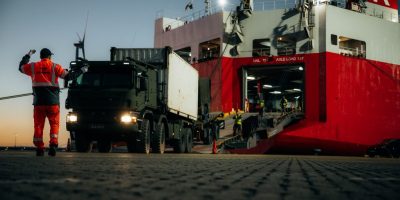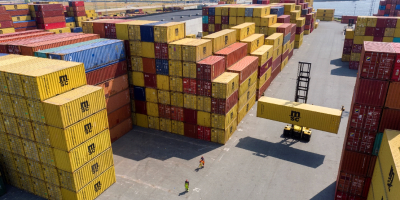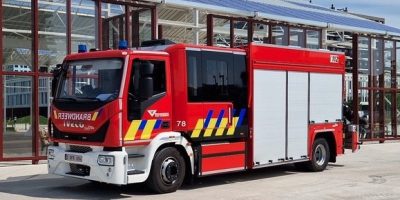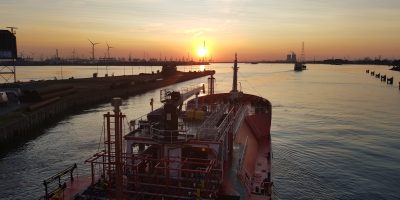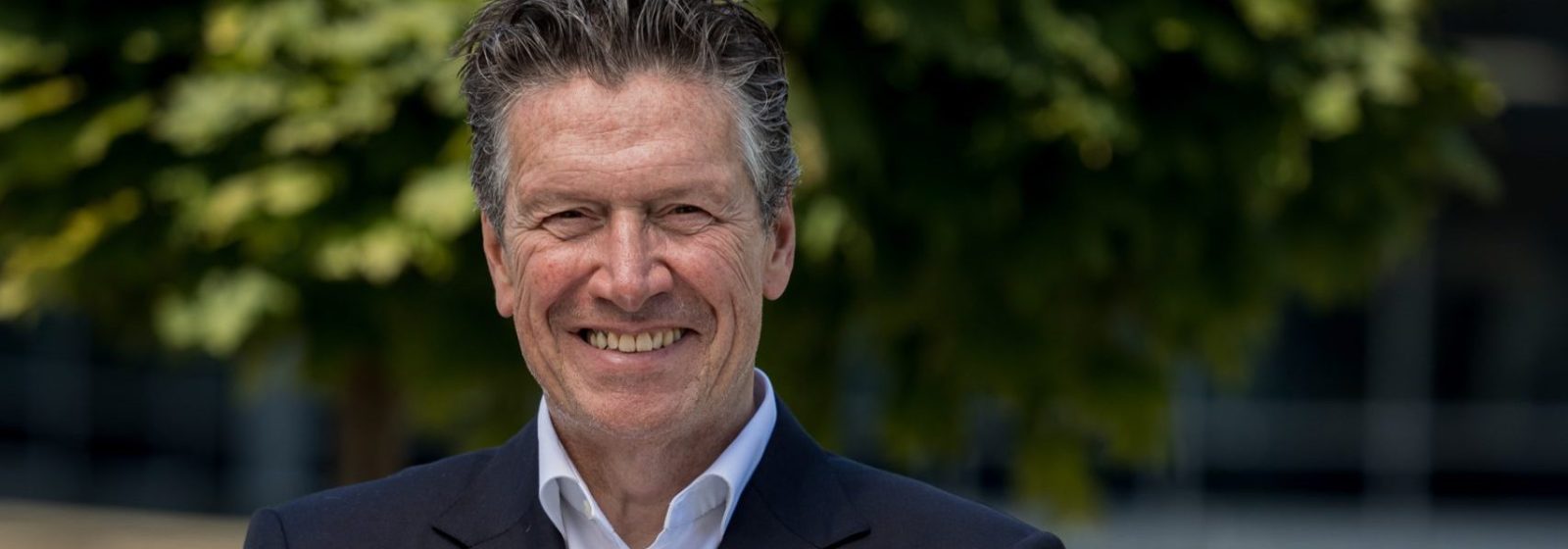
In our latest Flows magazine, we talk to Marc Beerlandt, CEO of MSC Belgium. The world’s largest shipping company has its European hub in the port of Antwerp. It is still attractive for operations, yet there are some challenges. A conversation about draught, container capacity, competition with other ports and a key challenge: mobility.
As top executive of the largest shipping company in the port of Antwerp, Marc Beerlandt often takes the lead in the port community. This applies both to bringing that community together at an event for charity and to naming the challenges we face. “On the eve of the far-reaching Oosterweel works, far too little is still moving around mobility in the port,” Beerlandt warns.
How attractive is Antwerp for MSC today?
Marc Beerlandt (MB): “Antwerp is the European hub for MSC, so we do everything we can to remain as attractive as possible. More draught is part of that. With today’s materials and techniques, a lot is possible. For MSC, a draft of 16 metres is extremely important. When you know that thirty centimetres means an extra thousand containers, every extra centimetre counts.”
More draught is one thing, extra capacity another. The ECA file is delayed.
MB: “ECA is a regret because the new dock is long overdue. I understand the complexity, but the result is that the dock will only be there in 2033-2034 and that is way too late. With the increase in scale that our branch of shipping has now achieved, there is definitely more need for quay capacity. The fact that we don’t have it is a major competitive disadvantage for Antwerp. The consequences could potentially be major if certain players move out to neighbouring ports. Today, we need to make better use of the current capacity until a new dock is in place. In that sense, we should look at other options to get more containers to and from the hinterland, such as night opening of the terminal. But its success is very low. There is also very little enthusiasm among companies for Saturday opening. I regret that.”
MSC is also investing heavily in the surrounding ports. A wake-up call for Antwerp?
MB: “Rotterdam – like Antwerp – is an important gateway. The capacity there is not at the expense of Antwerp. Then again, the investments in Le Havre and Hamburg were opportunities. MSC has a good two hundred ships on order, that capacity will also come to Antwerp. In the meantime, I do require Port of Antwerp-Bruges to think along with us to be as efficient as possible. The only thing I notice today is that there is far too little talk about mobility. In the next ten years we will be permanently confronted with the Oosterweel works and that will have a huge impact. The goods that customers bring to the port themselves will mainly go by truck and they will come when they want. I hold my heart when the bridge at the Sportpaleis is demolished in January. Surely Port of Antwerp-Bruges may play a more prominent role there. Energy transition is also crucial, but the most important thing seems to me to be the accessibility of the Port of Antwerp. Far too little is moving there today.”
Besides accessibility, are there any areas of concern?
MB: “The time a container is on the quay (‘dwell time’) should be as short as possible. The port authority can facilitate us with unambiguous systems. We need to exchange data to understand when containers are best collected. The best available container should be collected first. Together with MPET, we already have an application for this today, MPET-connect. Port of Antwerp-Bruges mandates the CPU system, but outside Antwerp and Zeebrugge this does not exist. That’s why MSC chose SCR, which communicates with CPu in Antwerp, where we are making great strides with T-Mining and their blockchain technology.”
How is the modal shift going?
MB: “From MSC, we already realise 60% of our transhipment by inland waterway and 20% by rail. But I expect a bigger role for rail because inland shipping is subject to the climate with, for example, too low water levels in summer. Today, I note that for access to the MPET terminal, nota bene the largest container terminal in Europe, we have only one railway line. There, too, is a task for the port authority.”
“Today we are also betting on partnerships with the major hinterland depots and we continue to look for opportunities. We have been active in this for years and want to establish the best connections; not only in the Benelux, by the way, but as far as Germany and beyond. We will actively look for locations where we can bundle transhipment.”
Flows has been in existence for ten years. What was the most important moment of the past decade for you?
MB: “Undoubtedly the move of MSC from right bank to left bank due to economies of scale. That has had an incredible impact, including on ‘quayside’, where we now do between 10,000 and 15,000 movements to and from the ship. The record is even at 24,000.”
For you, what is the biggest challenge for the next decade?
MB: “I see three things. First, as already cited, the Oosterweel and mobility in general, both transporting people and goods. Second, sustainability, for which very strict regulations are now being rolled out. With MSC, we are ready to be CO2-neutral by 2050, but it is a big challenge for many parties, especially because of the mandatory reporting. I also see a lot of ambiguity and uncertainty. That will haunt us for the next five to 10 years.”
“As a third and final challenge, I see the ‘energy revolution’ of moving to alternative fuels. The impact of that too is huge. Today, the chemical sector in our country faces a competitive disadvantage of factor four, because energy costs four times more here than in the US, and even 10 times more than in the Middle East. There will be industries that will have to completely reinvent themselves, and that too will have an impact. But I am positive, because humans are flexible. We have always been able to face big challenges!’

